Ian Hislop kicked off his new television series, The Age of the Do-Gooders, (the third and final part is on tomorrow night at 10pm, on BBC4 – you can catch up on the iPlayer) by revealing that William Wilberforce was not only an abolitionist but also, by today’s standards, something of a prude. It appears that Wilberforce underwent a religious conversion in 1785 and that this led to his belief in the wickedness of slavery but also to his conviction that Britain was in the grip of a slavery to wickedness which, to quote Rowan Williams, a Wilberforce fan, required ‘the reformation of manners’.
Hislop then puts forward his thesis that William Wilberforce was the godfather of all Victorian do-gooders and that the activities of this group of ‘eccentric, obsessive but remarkable men and women’ created a moral revolution which was as great, in its own way, as the industrial or French revolutions were in theirs. He then proceeds to run through the activities of some of the more successful, although not always, to me at least, the best known of these people, dealing in the first episode – ‘Britain’s Moral Makeover’ – with philanthropists interested in improving the living conditions of the poor and destroying the nepotism and cronyism of the civil service and the medical profession – and in this latter section, go and make a cup of tea about 23 minutes in, if you are at all squeamish – and in the second episode – ‘Suffer the Little Children’ – with those who concerned themselves with child welfare. The final episode will be devoted to the do-gooders who wished to change society’s behaviour in the areas of sex and drinking.
Of the individuals we are introduced to, many are still pretty much household names – Wilberforce, Barnardo, Charles Kingsley. Shaftesbury – while others are less familiar – Mary Carpenter, Charles Trevelyan, George Dawson, Thomas Wakley, Octavia Hill. Regardless of their current notoriety, almost every one of them could provide enough material for their own entire episode. Apart from the amusing anecdotes and intriguing information that Hislop provides about them – did you know, for example that the statue of Eros in Piccadilly Circus is actually of Anteros and was dedicated to the seventh Earl of Shaftesbury? – there is something fascinating about the intensity of their beliefs and the energy and purpose they brought to their activities in pursuit of what they saw as the public good. Their utter certainty about things seems unusual today and it is this, as well as their achievements, that makes them intriguing. Although they were our fellow countrymen, a lot of their behaviour seems quite foreign to us now.
Through their stories we discover that our attitudes have shifted fairly radically since the Victorian era. Mostly this seems to be a good thing: we no longer regard it as reasonable to require 10-year-olds to work; providentialism, the philosophy that led to Charles Trevelyan’s failure of compassion in the Irish famine, no longer holds many of us in its thrall. However, the burning Christian belief that motivated the majority of Hislop’s do-gooders is also a rare phenomenon these days – without it, can a similarly pressing sense of social responsibility be engendered among the populace? Other debates, including those related to the helpfulness of cash handouts and the usefulness of social workers, are raised during the programme, but it is the question of how you mobilise the faithless to altruistic activity that seems to me to be particularly pertinent in the light of the current British government’s advocacy of the ‘Big Society’.
Unfortunately, the only person Hislop questions about this is the Archbishop of Canterbury, who cannot really be expected to know much about motivating non-churchgoers. In any case, Hislop does not ask, “Who will do good now and why, if they are not Christian, will they do it?” but “Is it still possible to do good now?”
“Don’t say, ‘It’s all too difficult’; just say, ‘I can do this bit’, and then do this bit and do it well. Small things are worth doing,” is the Archbishop’s reply. This seems sensible advice, but it may not be enough to defeat the ever present forces of licentiousness and immorality: and, if you don’t believe me, look at this scene from the first episode of Hislop’s series. There, just over the left shoulder of that do-gooder’s statue, you can see them hard at work, beckoning to you with their wicked blandishments. ‘Tarts’, they whisper, indicating where you will find them with tempting little arrows, ‘tarts’. Clearly vigilance remains important; the insidious forces of lust and vice are still up to their dreadful tricks:

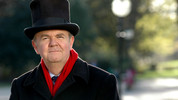
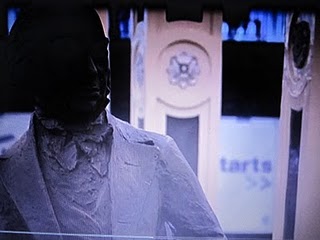
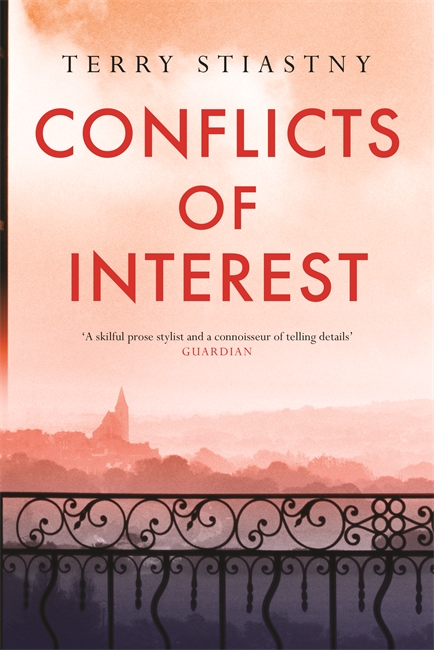
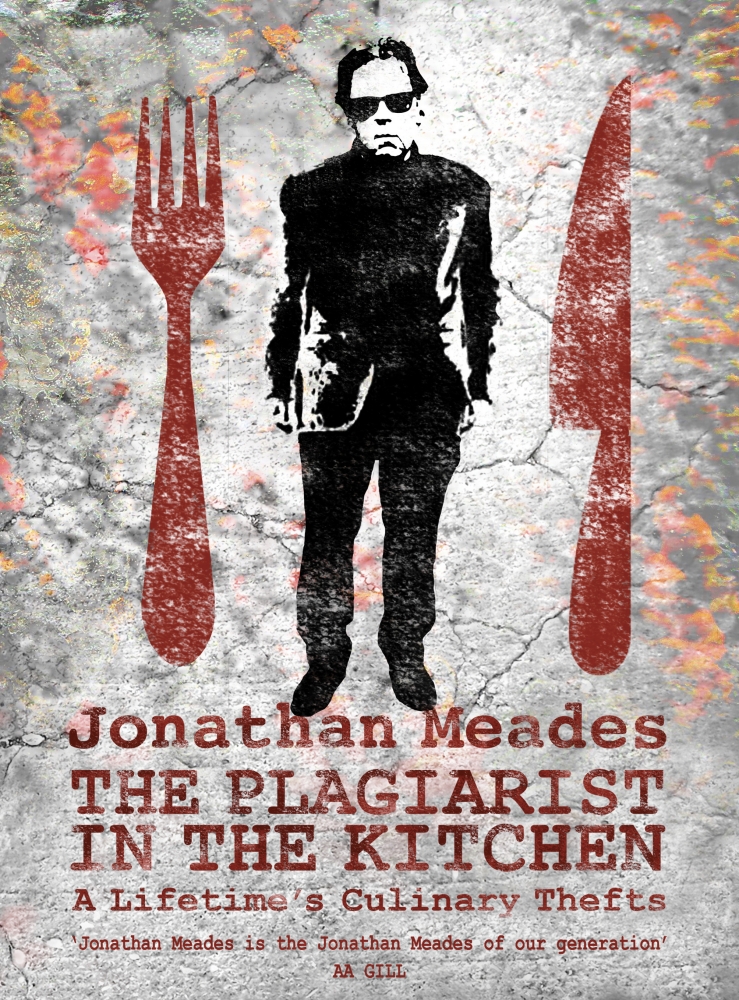
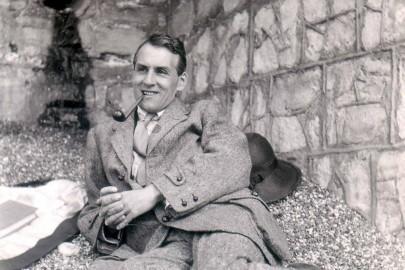







Perhaps we have fewer do-gooders nowadays as there’s less need for them? The intellectual and moral triumph of the Victorian do-gooders led to do-gooding becoming one of the chief roles of the state. As a consequence, there’s less uncontrolled ‘immorality and licentiousness’ around, meaning there’s less scope for freelance do-gooding (though the decline of religion must also be a factor).
well the victorians got Arnold Toynbee and we’ve got Polly.
A 50% tax rate doesn’t leave much quite as much room for philanthropy.
What astounds is not Wilberforce’s humanity but his fortitude, it took so long, we would have given up, he carried on, hammering away.
Today’s DGs tend to be nit pickers of the Mary Whitehouse and Francie Pakenham variety, irritating nuisances. Apart from the banging up of the Milibands, what other great causes are left.
‘Tis a great pity that the winkling out of cronyism in the Civil Service and medical profession has as yet to take effect.
Seriously, there is a cause worthy of march, banner and fire extinguisher, the education system, it’s crap, the result of allowing the lunatics management rights over the asylum.
Damn straight, Malty. The stats alone on private v comp school results scream for themselves. Perhaps then, Toby Young is a modern do-gooder: now there’s an irritating little squirt, but trying to set up a half-decent free school which his own kids might not be able to attend.
Yes, Malty, lesser men might have given up. Earlier in the 18th century it took Thomas Coram the best part of 20 years to get a Royal Charter for the establishment of his famous Foundling Hospital. He was a do-gooder in the best possible sense but a bit ahead of his time if you believe the Hislop chronology.
Gaw – your phrase ‘freelance do-gooding’ suddenly made me remember my minute amount of do-gooding in Britain – at a hospital in London. They had to pay the state 80 pounds to get a check on each volunteer and that took about three months. As you can imagine, many would-be do-gooders drifted away, crestfallen at the lack of enthusiasm their offer was greeted with (being of stern colonial stock I stuck with it, I should add – and even got passed by the checkers, which some might say demonstrates the inefficacy of the whole procedure)
So Malty’s right about needing stamina for do-gooding. As to the quacks, I don’t know whether cronyism is the problem or just the fact that many of them are horrid, while to survive in the civil service you probably do better if you lack a sense of humour, which is annoying to all those of us who have to deal with them.
Brit – are you really paying 50% tax (have you ever thought of emigrating?)
Worm – I shall have to look up Arnold. Is Polly related to him? If so, would he be pleased by the relationship?
Good God no, not me, Z. But anyone earning over £150k per annum is. It’s 40% over just £37,500, too, and we’re not even at war with with the French at the moment.
Why would anyone NOT assume the state would do everything?
Yes, Sophie, you’re right – Coram was wonderful and the Hislop thesis couldn’t encompass him. Nonetheless, it was a good prog, I thought, because it entertainingly introduced me to lots of interesting things I didn’t know.
I wish I’d seen this. I suppose it’s snappy to call such characters ‘do-gooders’. I hope Hislop didn’t skate over the fact that people arguing for abolition of slavery were most often the type of folk most reviled in the Britain of today – i.e. evangelical Christians. That Pakenham was a plonker though, wasn’t he? I mean, devoting his efforts to Myra Hindley when thousands banged up for less ‘glamorous’ crimes barely got a glimpse of his illustrious self.
Ah, the fragrant Polly, past mistress of putting on the kettle, South London cyclist extraordinaire, rentanopinion supreme, she must be related to something, somewhere, the GillyWark perhaps.
I enjoyed the last programme in the series. As Gaw says we expect the welfare state to do the work that those philanthropists did. The biggest do-gooder around at the moment is Bob Geldof, I would have thought.
Anyway I love any programmes about the Victorians who really were amazing – when I see one of their great viaducts or confident industrial cities or read one of their huge fat novels I think our age is totally dwarfed by them.